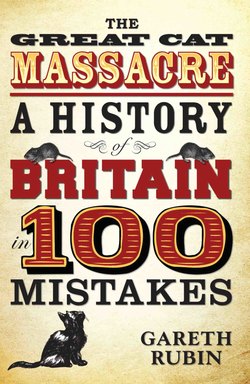Читать книгу The Great Cat Massacre - A History of Britain in 100 Mistakes - Gareth Rubin - Страница 19
На сайте Литреса книга снята с продажи.
THE WRONG FUGITIVE – JOHN STONEHOUSE GETS CAUGHT, 1974
ОглавлениеJohn Stonehouse MP, who had been Postmaster General in one of Wilson’s governments, was having a few problems. His debts were mounting and he was cooking the books at his business to hide it; he was also conducting an extramarital affair with his secretary and, to cap it all, he was spying on Britain for the Soviet Bloc, in the form of the Czech intelligence service. Quite how he found the time for all of this is anybody’s guess.
Clearly, the scheduling was becoming tough for him too, so tough that he decided to fake his own death in an elaborate – some might say ‘romantic’ – fashion.
His first step was to identify a dead constituent, Joseph Markham, and go about stealing the man’s identity. He even rehearsed ‘being’ Markham. A psychiatrist’s report from the time states: ‘He spent short periods posing as Mr Markham, a private and “honest” individual, which apparently led to reduced tension. He began to dislike the personality of Stonehouse and came to believe that his wife, colleagues and friends would be better off without him. He therefore devised his escape to get away from the identity of Stonehouse. He thought of suicide but, deciding that this was not the answer, devised a “suicide equivalent” – his disappearance from a beach in Miami.’
On 20 November 1974 Stonehouse went to the beach in Miami, left a pile of clothes on it and promptly disappeared, leaving the authorities to believe he had drowned while swimming. Newspapers printed his obituary, lamenting his death. His wife, Sheila, was distraught at the death of her husband – not realising that he was, in fact, on his way to Australia to start a carefully constructed new life with his secretary/mistress, Sheila Buckley.
Upon arrival in Melbourne, he set about accessing the 36 different bank accounts he had opened in a variety of names, swapping money between them to cover his tracks. As ‘Clive Mildoon’, he deposited Aus$21,000 – around £90,000 now – in cash at the Melbourne branch of the Bank of New Zealand. It was just unlucky for him that the cashier from that bank later spotted him in the branch of the Bank of New South Wales depositing money as John Markham. The cashier thought this was a bit suspicious and spoke to the police.
Here’s where Stonehouse’s luck really fell apart.
At the very time that John Stonehouse was running away from his debts, another British celebrity was fleeing from murder – ‘Lucky’ Lucan. An international manhunt for the fugitive peer was underway and the Australian police were on the look-out for him. When they heard about a suspicious Englishman depositing large sums of money at a number of banks, they therefore thought they had found Lucan and placed him under surveillance.
As part of the investigation, a police officer went to search his flat. By astonishing bad luck, the policeman noticed a book of matches on the table in Stonehouse’s home from a hotel where the officer had stayed 20 years earlier – in Miami. He finally put two and two together and realised they, in fact, had John Stonehouse, who wasn’t even missing.
He was arrested on Christmas Eve. Just in case he was Lord Lucan after all, the police made him pull his trousers down, to look for a scar that Lucan had on his thigh. His skin told them it was probably Stonehouse.
After unsuccessful attempts to gain asylum from the mighty powers of Mauritius and Sweden, Stonehouse was deported to Britain, where he technically remained an MP while behind bars in Brixton prison.
Stonehouse was tried on 21 counts of fraud and wasting police time. He conducted his own defence, which must have gone well because he was convicted and sentenced to seven years in Wormwood Scrubs, where he complained about the fact that the radio in the prison workshop only ever played pop music. A few years later, he was released due to ill health, at which point he blamed the press for his downfall, rather than the fact that he had been a spy, adulterer and international criminal.
In 1980, the Prime Minister, Margaret Thatcher, agreed not to prosecute him even though a Czech defector had revealed that Stonehouse had been spying when he was a minister. This was, in a rare stroke of luck for Stonehouse, due to the fact that the previous year Anthony Blunt, formerly of MI5, had been exposed as another member of the Cambridge spy ring, so a minister being outed as a Soviet agent would make it look as if Downing Street was little more than the Kremlin’s London branch.
There was something of a happy ending for Stonehouse when he came out of prison because his wife divorced him and he married his secretary. He died in 1988, by which time he had joined the SDP.
It is often assumed the novel – and later BBC TV comedy series – The Fall and Rise of Reginald Perrin, in which the eponymous hero fakes his own death, was inspired by Stonehouse. In fact, the novel was written before the MP’s exploits but not published until afterwards.
